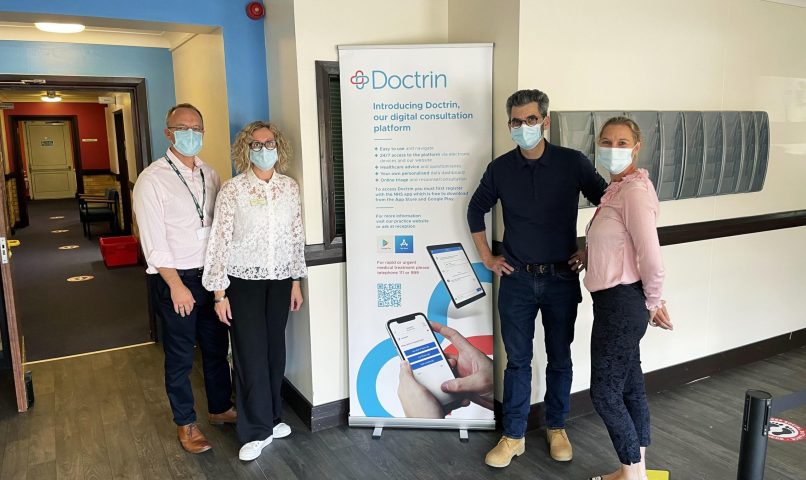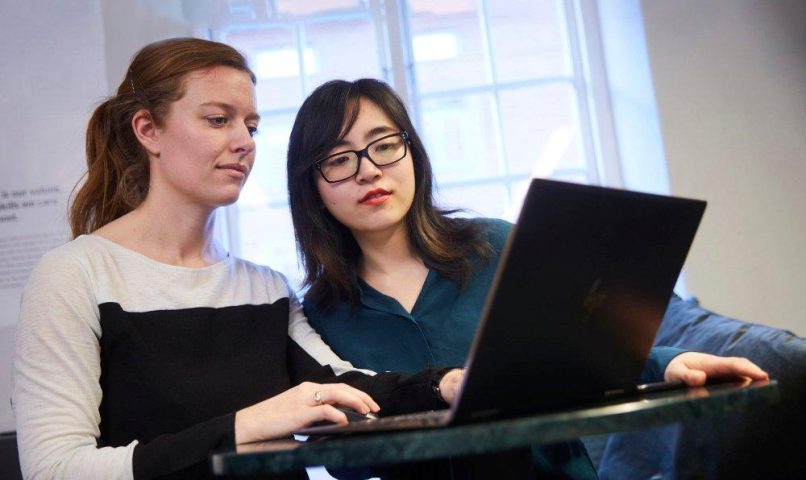
We know what it is like to walk a mile in our customer’s shoes
Offering digital solutions that strengthen both quality and efficiency in healthcare requires a great understanding of the daily activities and the needs of the care staff. Maria Granström, implementation manager at Doctrin, talks about her background as a Nurse and Specialist Nurse working with children and adolescents and why she chose to start working at a tech company whose purpose is to radically improve healthcare.
Tell us a little about your background and what you do at Doctrin?
My mother was a nurse, so that was the only thing I knew I would not do. Master of Science was the plan, but with a few twists and turns in life, I became a nurse – which I have been thrilled with over the years. I have worked in many different businesses, both in private and public healthcare, inpatient care and primary care.
About ten years ago, I chose to study my specialist skills as a pediatric nurse. When I completed it, I felt that I was pretty much done with the clinic. I started to take on more administrative tasks and was also given responsibility for the training within the business. So, I got where I am today with training, business development and working with digital tools.
At Doctrin, I work in Customer Success as an implementation manager, where I mainly focus on the business-related implementation and training of the platform.
What made you, who has worked clinically for a long time, join a company that develops digital healthcare solutions?
I have probably always looked for opportunities to improve processes and flows. When I ended up at a company that provided remote care, my interest increased. It was a natural step to seek out Doctrin, who has a vision that agrees well with mine; to streamline what is possible, especially concerning the administrative parts of healthcare, to free up time for care staff so that they can use their skills and time where it is most useful to the patient.
Based on your personal experiences, what was it like working clinically as a nurse?
I worked for quite some time with medical advice on the phone. As the work looked then, I needed to gather information no matter what the patient was looking for. This meant that a less so significant injured finger could require as much time on the phone as someone with breathing difficulties. In both cases, I must make a qualitative and correct assessment, exclude severe conditions and give a proper referral to healthcare if it becomes relevant. When making assessments throughout the day, the risk is that fatigue impairs the ability to listen to the subtleties in the patient’s story. There is also a risk of failing to ask questions that can provide critical information for the assessment.
“There are many benefits to working digitally. In our platform, with the help of our advanced medical content, a report is created with information needed to make a qualified assessment.”
There are many benefits to working digitally. In our platform, with the help of our advanced medical content, a report is created with information needed to make a qualified assessment. The forms also create an opportunity for the patient to express what is important to them in the contact, contributing to the patient becoming more involved in their care. From experience, we know that the care staff, based on the reports, can quickly make an initial assessment of how the case should be handled further and know which cases they need to prioritize to make a deeper assessment.
As staff in the healthcare system, you are constantly in meetings and interactions with patients and colleagues. Constantly being on “broadcast” and “on stage” can be tiring, not least when it is stressful, and you have a job with great responsibility. Therefore, many of our users describe how relaxing it is to alternate the work in the platform with the usual working ways at the care centre. In the platform, they can work focused and in peace with handling cases and helping patients digitally, which leads to them feeling that they have more energy and commitment to be present in the physical meeting with the patient at the clinic.
Why is it essential that a company that develops digital solutions also has medical expertise and clinical background?
I think it is crucial for credibility and relevance. We know what kind of everyday life our customers encounter because we have been there. This allows us to understand their problems more quickly. We speak the same language, and we can, based on their needs, come up with concrete and relevant suggestions for solutions. We can point to functions in the platform that we know create benefits for the individual in a fast and smooth way, which increases the incentive to implement and succeed with the change work that the implementation of a new tool and way of working requires.
What is the most fun thing about your job at Doctrin?
There is so much! Seeing what happens when businesses start using our tool is fantastic. They can often be sceptical at first, but then our platform creates a significant change in a positive way. It’s incredibly fun to watch. It is also fun to meet customers and see how they use our platform to develop operations and streamline their flows. Being able to follow how they become more accessible and create new values for themselves and the patients is so cool. And then all the skills in the company, I learn so much every day! It is a lot of fun working at Doctrin!
For more information on our solutions for digiphysical care contact Craig Oates, UK Country Manager Doctrin




